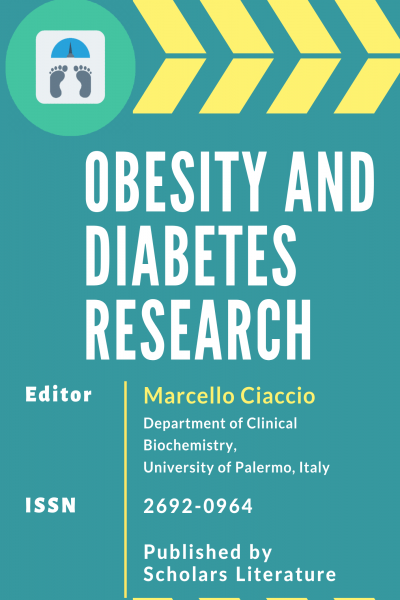Journal Highlights
Obesity and Diabetes Research provides an interdisciplinary platform which covers aspects related to obesity and diabetes. The journal also covers aspects pertaining to the mechanisms and pathways associated with diabetes and obesity at subcellular, cellular, molecular, and organ levels. It also deals with the basic, applied, and translational research aiming to provide the intricate associations of various key regulatory networks associated with obesity and diabetes.
Clinical epidemiology
The study of the patterns, causes, and effects of obesity and diabetes in patient populations and the relationships between exposures or treatments and health outcomes.
Cardiovascular complications
Type 2 diabetes mellitus is a common metabolic disorder predisposing to diabetic cardiomyopathy and atherosclerotic cardiovascular disease, which could lead to heart failure through a variety of mechanisms, including myocardial infarction and chronic pressure overload.
Diabetic nephropathy
It is a common complication of type 1 and type 2 diabetes. Over time, poorly controlled diabetes can cause damage to blood vessel clusters in your kidneys that filter waste from your blood.
Nutrition and dietetics
Eating the right foods for diabetes means eating a variety of healthy foods from all the food groups.
Diabetes inequalities
Inequalities in access to care and in outcomes for people with diabetes affecting not only morbidity and mortality but risk of developing diabetes, access to structured education and care, glycaemic control, and risk of complications.
Diabetic ketoacidosis
It is a life-threatening problem that affects people with diabetes. It occurs when the body starts breaking down fat at a rate that is much too fast. The liver processes the fat into a fuel called ketones, which causes the blood to become acidic.
Multi-organ complications
Complications of diabetes range from acute, life-threatening conditions such as severe hypoglycemia or ketoacidosis to chronic, debilitating complications affecting multiple organ systems, such as retinopathy, nephropathy, neuropathy, and cardiovascular disease.
Genes, genetics, and metabolism
To identify the genetic mechanisms underlying type 1 and type 2 diabetes-and how genetic and epigenetic variation influences the metabolism of therapeutics.
Diabetes signalling pathways
To understand the pathogenesis of diabetes by studying various signalling pathways.
Genetic obesity
To study and understand the complex, heritable trait influenced by the interplay of genetics, epigenetics, metagenomics, and the environment.


